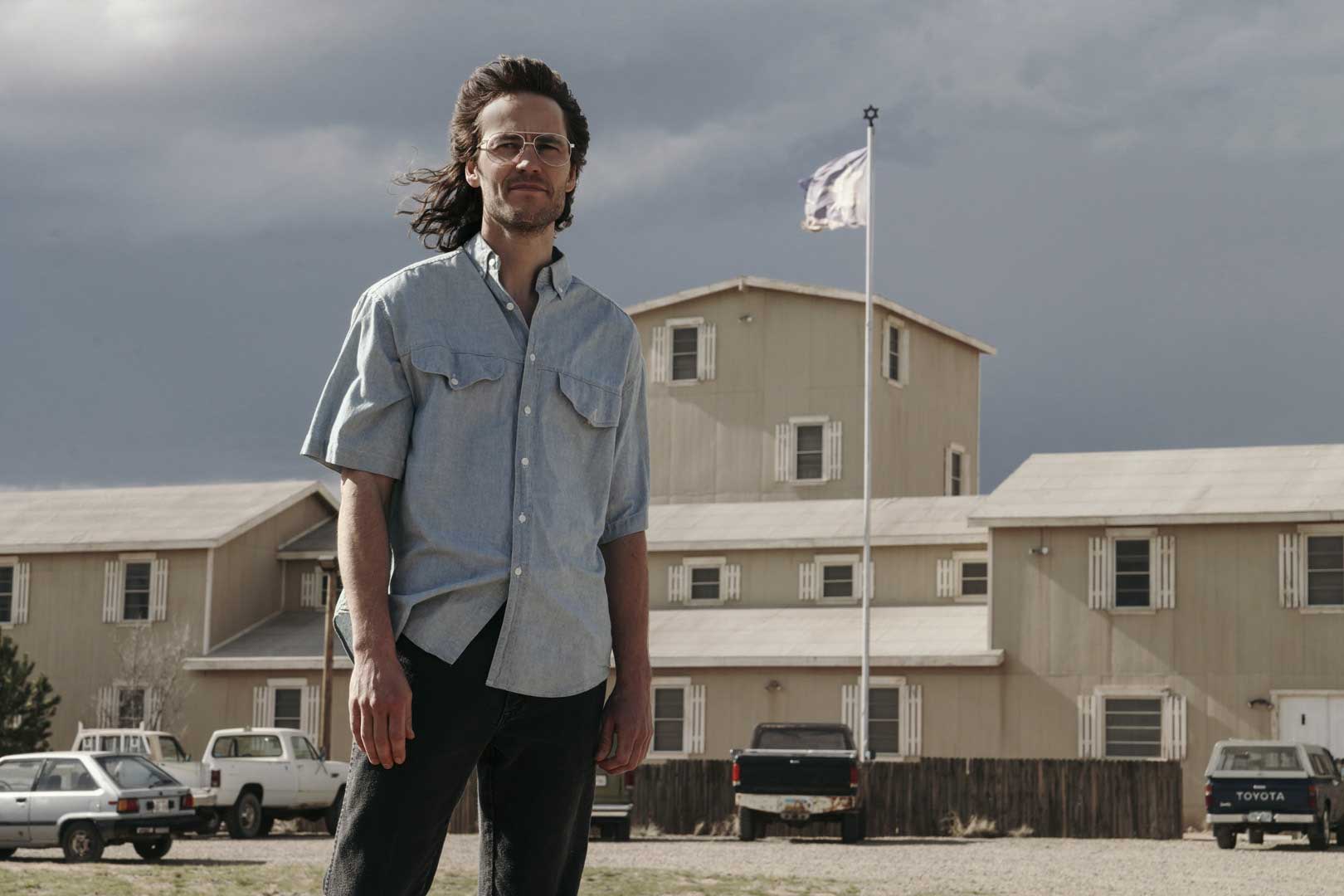Waco Episode 6 Season Finale Review: Day 51
The Waco miniseries ends with tragedy, on a couple of levels. Read our review here!
This Waco review contains spoilers.
Waco Episode 6
Though it’s been overstated at this point in each of my previous reviews, Waco is too simple to be great. What should have been a nuanced retelling of a group of religious fanatics demonized by “shoot first, ask questions later” federal agents, with no side in the wrong, became a single-minded story about the good guys being crushed by the bad guys. David Koresh, a megalomaniacal actual pedophile, was transformed into a cool preacher type who only “assumes the burden of sex.” What happened at Waco was a complex, multifaceted tragedy that saw massive injustices committed by both parties. Though only one party eventually ended up paying the price, the retelling too comfortably chose its side and downplayed the disturbing elements that muddied their waters.
The finale carried many of the overly simplified shortcomings that weighed down the rest of the miniseries, but also a couple of interesting revelations that perhaps eluded those that only casually followed the news back in the day or missed it entirely. For instance, the Branch Davidians using a satellite to communicate with the outside world was a detail that’s frequently forgotten in their story and something that perhaps could have had more significance in the story. The right-wing radio host was a device that never really had any payoff besides this week’s heavy-handed epilogue; it would have been nice to see him communicate with the group more and see the reaction that the Branch Davidians’ transmissions had on the outside world. Another detail that comes early on in the episode that’s often glossed over is that lawyers actually entered the compound. If the Branch Davidians had ever made it out, they could have been the real heroes of this story.

Before the flames were ignited, both Michael Shannon and Taylor Kitsch attempted to bring the heat. First, Gary learns that the FBI is planning on using CS Gas, deemed inhumane, on the Branch Davidians. Gary and the Davidians had already agreed upon terms and were just waiting on David to deliver his version of The Seven Seals in writing. Now, Waco shows David working on his manifesto like a madman, but not quite ready to reveal his work. A smart show would have left that ambiguous, since no one really knows if David was ever planning to come out, and he did renege once before. Regardless, Gary’s fury at his boss, his colleagues, Steve, everyone is harried and desperate. He completely loses all semblance of cool with Steve and begs him to convince David to at least show some pages, but it’s worthless. Shannon proves he can make even the thinnest writing work for him.
Kitsch gets his moments in as well. When Koresh hops back on the phone to find that Gary has been relieved of his duties, and learns time is running out, he flies off the hinge. It’s the most manic I’ve ever seen Kitsch play, with his howling protests leaving a lasting image of his work on this show. Koresh wasn’t written correctly, but Kitsch did the best with the show’s portrayal. When Steve finally learns that tear gas is imminent, Waco’s simplified depiction becomes a strong suit. The chaos unfolds unfiltered. The only issue, which was addressed in a previous review, is that the layout of the compound is very unclear. When characters are separated here in different rooms, it’s hard to know how far away they are from each other and how close they may be to an exit. It may add to the chaos for some but left me wondering.
Nevertheless, the gas and subsequent fire is horrible to imagine and even more horrifying to see reenacted. For once, the show pulls no punches and accurately displays the devastating, senseless loss of life. The only hiccup comes with the ending of David’s story. In this retelling, what sense does it make that David would take his own life? If he was coward and a fraud who didn’t truly believe in the Seven Seals like he was preaching, or if we were left unsure, then sure, his suicide makes sense. But wouldn’t a man of God choose to go out in the flames? Isn’t suicide deemed an unforgivable sin?
The epilogue, centered on Thibodeau as he returns to the site of the tragedy and unearths his gift to the late Michelle, is fine on the surface, but I still don’t feel the emotional connection that I should. The problem is that I don’t know a thing about Thibodeau, except that he’s a solid dude who looked after a vulnerable girl. I have no idea what his interior life was like, not even an idea of why he would have been driven to join up with people like the Branch Davidians in the first place. Once again, it’s no fault of the actor, Rory Culkin, who did fine work throughout the series. Waco just lacked depth in the writing.
So the first miniseries for the Paramount Network probably wasn’t the prestige critical and commercial hit that they were hoping for, but it wasn’t a certified mess either. Solid performances almost saved a story that had the real life dramatic juice that should have made it a foolproof smash. Sadly, instead of a complicated study in history that could teach us something about our world today, Waco chose to be a black and white parable and suffered for it.
